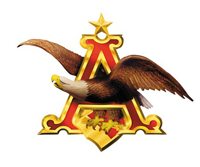In light of disappointing third quarter earnings results, Anheuser-Busch InBev has laid off an undisclosed number of U.S. employees, according to Market Watch.
The cuts include salaried positions in a number of divisions, the report adds, from marketing, procurement, sales, and brewery operations. While the specific number of layoffs is unknown, one person close to the matter estimated it could be in the hundreds.
“These are always difficult decisions, but are important in evolving our business and improving our competitiveness,” said Jim Brickey, A-B vice president, people, in a statement obtained by Market Watch.
Additionally, the company is consolidating its sales force while “reducing the total number of sales regions it covers from eight to seven.”
Left Hand Drops Pursuit of Nitro Trademark
After Left Hand Brewing faced backlash from beer industry members and consumers alike, over its attempt to trademark both “Nitro” and “Nitro Milk Stout,” the company has abandoned the effort, court records show.
According to Denver Westword, the Longmont, Colo. company ended its attempt to trademark the names back in August; a trademark was initially granted in February, though immediately challenged by Boston Beer, Diageo, and Anheuser-Busch, the article adds.
“It was never meant to piss anybody off, but to protect a ton of money and time that we had spent on it,” Left Hand spokesman Chris Lennert told the website. “We were trying to protect ourselves from having one of the big guys come out with a package like that. But we said if we are going to get all this flak for it, then we don’t want to do it. So we came back and shifted our focus. We didn’t want to be negative.”
The anger stemmed from the belief that “Nitro” referred not to a specific brand name, but a specific style of beer.
The fact that there’s a black market for beer in and of itself isn’t surprising. When you combine anything scarce with abundant demand, amoral impresarios will surely be there to capitalize, flipping said rarity for a lot of money.
But CNN’s latest coverage of such illicit dealings offers some insight into just how much disreputable beer hawkers can make selling suds illegally. Hint: A lot.
Natalie Cilurzo, co-founder of Russian River Brewing, has seen beers that her company retails for $5 sell for more than 20 times the price (or more) online. Bill Sysak, craft beer ambassador at Stone Brewing, said he’s seen limited brews from 2002, that originally sold for $7.99, currently selling for more than $1,000. Lost Abbey’s cherry Cable Car, which founder Tomme Arthur released in extremely limited quantities in 2012 at a price tag of $45 per 750 mL bottle, has since skyrocketed on the black market, now carrying a stick of more than $800.
But this isn’t merely getting rich on the work of others.
When scalpers flip concert tickets, for instance, most buyers are aware that the seller isn’t at all affiliated with the venue or ticket retailer. With beer, however, the lines are blurred. Scarce offerings like Russian River’s Pliny the Elder are sometimes times being sold illegally by retailers, at inflated prices.
“Our recommended selling price can be $5, and yet we see it in a liquor store that bootlegged it and put it on the shelf for $25,” Cilurzo told the website. “The consumer doesn’t understand we have nothing to do with that.”
UK Company Launches Machine to Make Beer Hoppier
Have you ever had a beer and thought, “Yeah, this is good, but perhaps Cascade would’ve been a better hop choice.”
If so, U.K.-based Cambridge Consultants may have a product for you. The product development company is working on a barista-style tap system, “Hoppier,” that could, instantly, infuse different hop flavors into a beer as you pour it, according to the Drinks Business.
Edward Brunner, head of food and beverage at the company, claims the machine speeds up the dry hopping process by adding extra hops at the point of dispense.
“The technology we’ve created is the merger of an espresso machine and a beer [tap],” he said in a video explaining the technology. “The consumer is able to go into the bar, ask the barman, I would like that beer but with Cascade hop flavor, or Fuggle hop flavor.”
Sound familiar? Maybe that’s because a similar idea emerged last year when OnTap LLC, a Colorado-based startup, tried hawking flavored, non-alcoholic liquid beer enhancers.
Seattle Club will Bring Growlers to Your Door
For $60 a month, a new club in Seattle will deliver growlers of locally brewed beer direct to your doorstep every Friday or Saturday.
Brewtown, which is slated to launch in January, will allow for anyone within a 25-mile radius of downtown Seattle to choose between two different offerings each week and have it brought straight to them, according to GeekWire.
“We think we’ve found a service that people really want,” said club co-founder Ryan Miller.
The article adds, however, that Miller and co-founder Ian Duncan still have “liquor licensing hoops to go through, logistics to solve, capital to raise and partnerships to solidify before the deliveries begin.”


